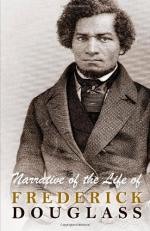|
This section contains 8,030 words (approx. 27 pages at 300 words per page) |

|
SOURCE: Burt, John. “Learning to Write: The Narrative of Frederick Douglass.” Western Humanities Review 42, no. 4 (winter 1988): 330-44.
In the following essay, Burt characterizes Douglass's Narrative as a declaration of citizenship.
Frederick Douglass claimed that he began to become free when he learned to write. Part of what he meant was that in writing he found the means to see himself as himself rather than as his masters saw him.1 But he also meant that writing enabled him to cross between two different kinds of identity and two different kinds of world. One of these kinds of identity I will call “selfhood,” an identity governed from within by need and desire and from without by force and fortune. The other I will call “citizenship,” an identity which gives law to itself in the form of duty and law to others in the form of rights. Only this latter kind...
|
This section contains 8,030 words (approx. 27 pages at 300 words per page) |

|


